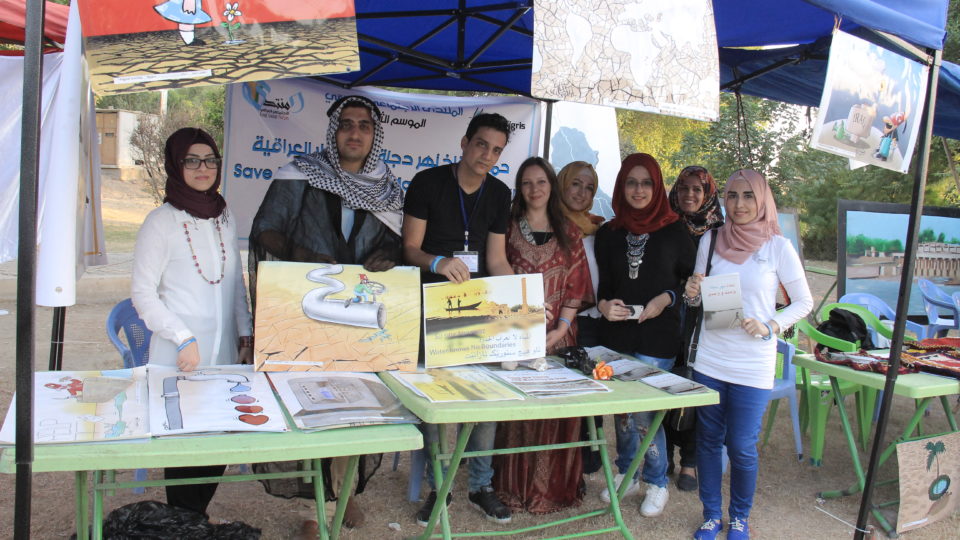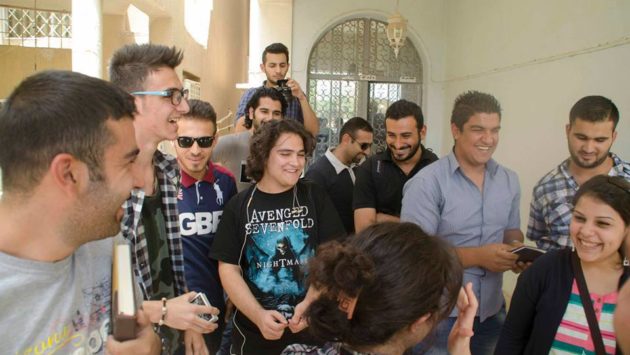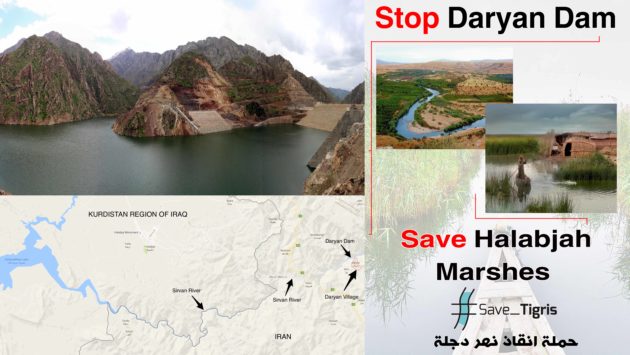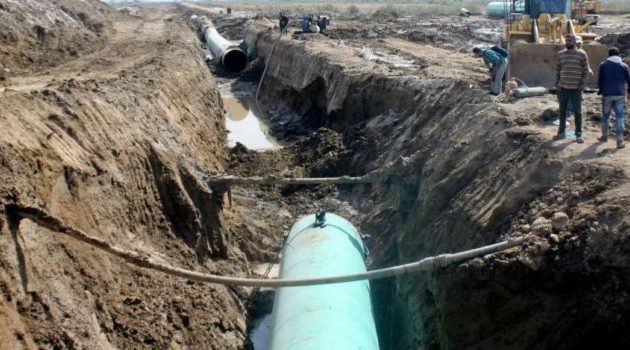Participate in Save the Tigris Program of the Fourth Iraqi Social Forum!
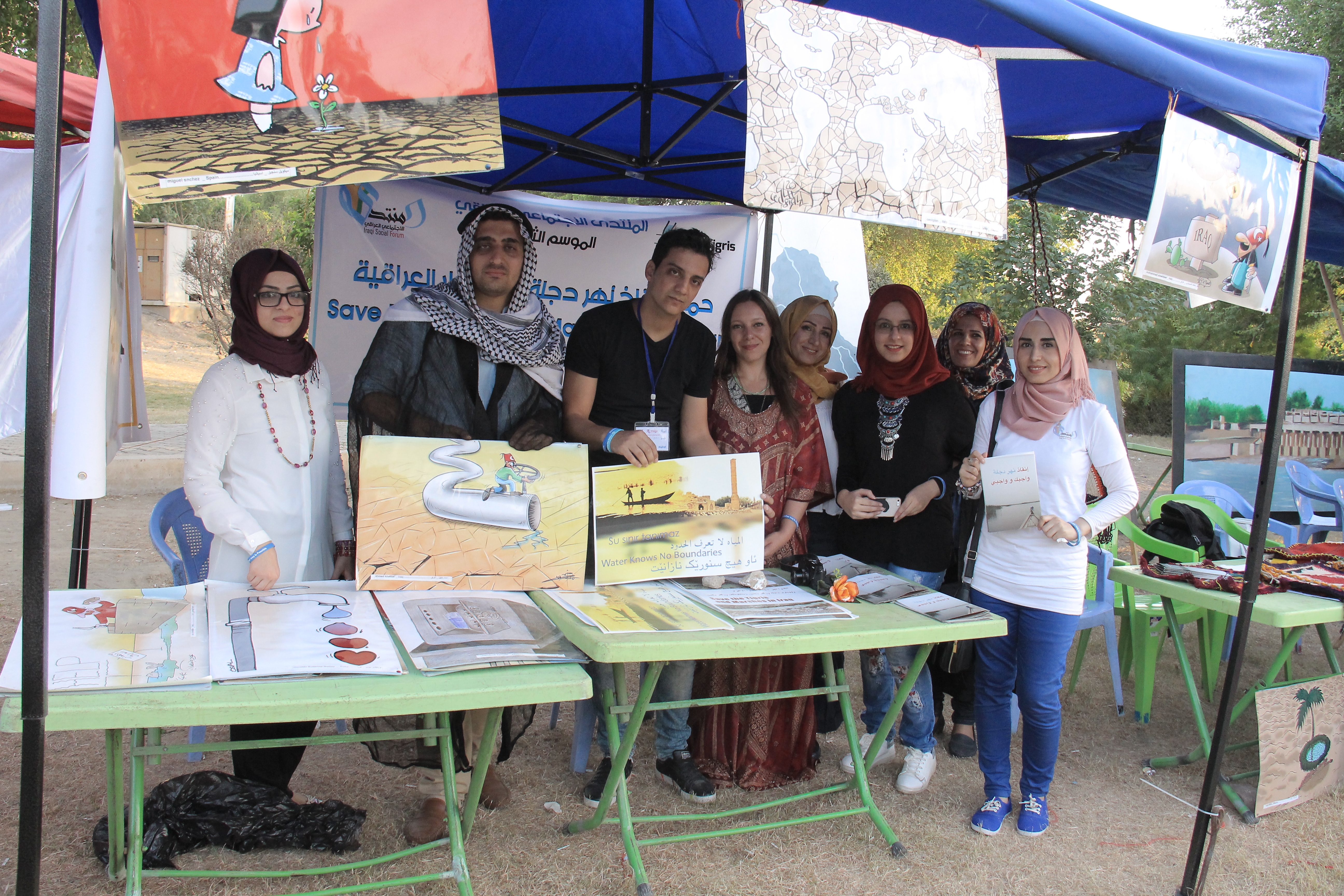
Save the Tigris and Iraqi Marshes – Baghdad
Less than 2 weeks prior to the start of the 4th Iraqi Social Forum in Baghdad, the Save the Tigris campaign is in the final stages of planning for a series of workshops and information booth at this year’s gathering of civil society from across Iraq. Save the Tigris Campaign calls on all those who are concerned about environment and water management issues in Iraq and the wider region to participate in the workshops and assemblies at this year’s Iraqi Social Forum. The event will offer an opportunity for water activists to strategize together to protect the water resources of Mesopotamia.
Safeguarding access to water
Salman Khairallah, the Iraqi coordinator of Save the Tigris, repeated his call to halt the construction of the Ilisu dam in Turkey, which is expected to be completed in the next year. “International pressure can be effective, since it previously lead to international companies pulling funding for the Ilisu dam project,” said Khairallah. In 2009, European firms financing the dam construction cut their funding citing significant social and environmental concerns raised by activists. For Khairallah, the main goal of the campaign is to combat and reverse the negative human impacts on the environment, which have caused climate change, threaten biodiversity, and are expected to force mass displacement. “Today people are already being uprooted from their homes because of a lack of access to water, the source of life,” he said.
Political solutions to political problems
Threats to the Tigris River have political roots: “water knows no borders” is a popular slogan among regional water activists. In the absence of a political agreement between neighbours Turkey, Syria, Iraq and Iran, countries that control upstream parts of the Tigris and Euphrates Rivers have a relatively free hand to divert water flows – directly impacting downstream populations. Despite receiving UNESCO heritage status, the famously treasured Iraqi marshes – once suffered greatly during different political realities in the 1990s – are again facing desperate times as projects such as Ilisu dam threaten to destroy life in the marshlands.
In a recent meeting with the Iraqi Minister of Water Resources Dr Hassan al-Janabi, Save the Tigris campaigners stressed Iraq must demand a halt to projects such as Ilisu dam, and embrace “nature-based solutions” to water management challenges; damming rivers is not an option. “We promote alternative mechanisms to enhance the flow of water, and in turn improve biodiversity, without diverting any water,” Khairallah noted. Save the Tigris Campaign during the meeting emphasized to al-Janabi that the region’s governments must reach a comprehensive diplomatic agreement on equal water sharing and distribution in order to protect all of Mesopotamia’s water sources: “Only a sustainable diplomatic solution will save the water resources that we all depend on.”
Call for support during Iraqi Social Forum
The route to a political solution begins with civil society. The campaign aims to expand its popular support at the 4th season of the Iraqi Social Forum.
The Save the Tigris Campaign therefore invites activists concerned about water management and environmental crises in Iraq and the wider region to attend its workshops and visit its booth during the Iraqi Social Forum. The Forum will be held over three days, 30 November to 2 December 2017. The first two days will be at the Baghdad Academy for Human Sciences, in Baghdad, Karrada District, 42nd Street. The final day will be held on Abu Nawas Street at Shahrazad and Shahryar park.
More information about the Save the Tigris campaign can be found at www.savethetigris.org, and more information about the Iraqi Social Forum can be found on the Forum’s Facebook page.

